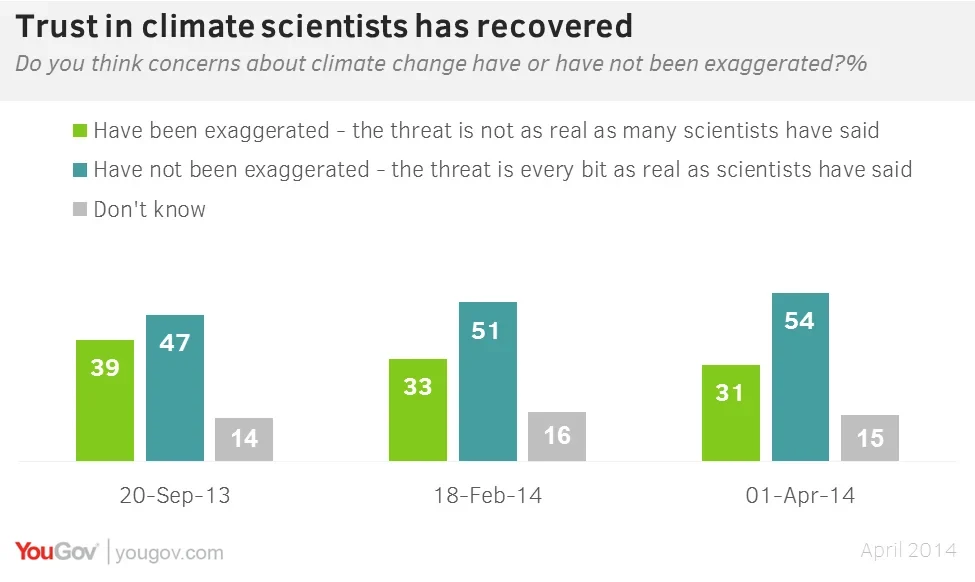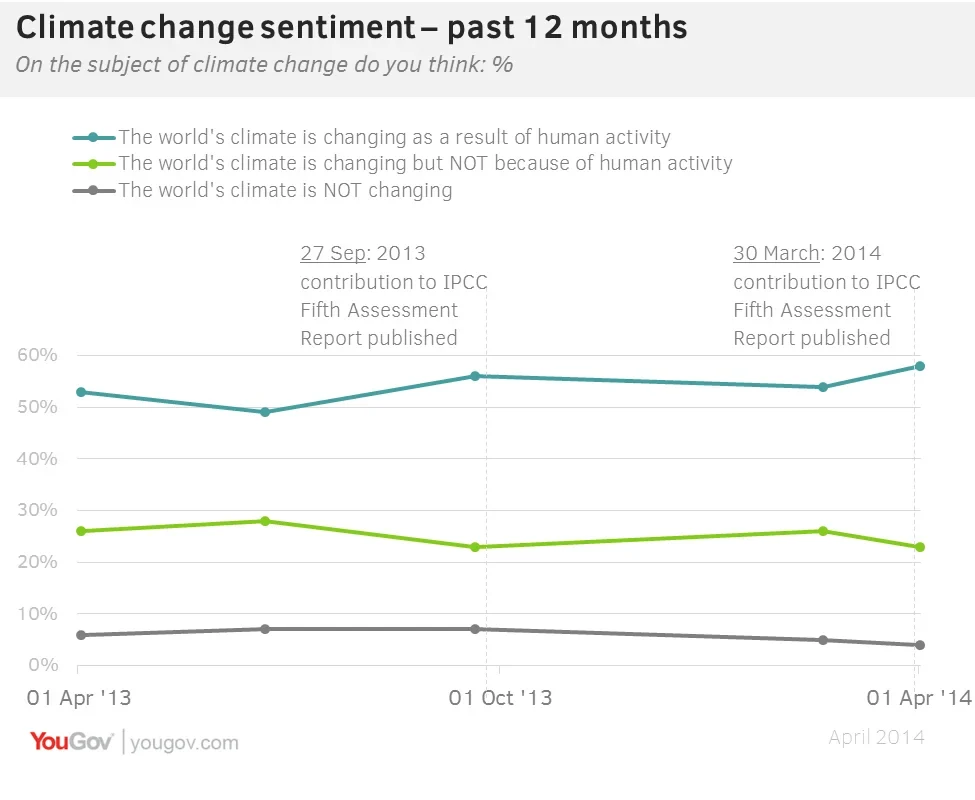Trust in climate scientists has recovered since controversies last year – while belief in climate change remains constant
The impacts of climate change are likely to be “severe, pervasive and irreversible”, a new report by the UN’s Intergovernmental Panel on Climate Change (IPCC) warns this week.
Scientists say the document is the most comprehensive assessment so far of the impacts of climate change on the world, which include a higher risk of flooding and reduction of food and water supplies.
But the last time the IPCC released a report, last September, controversy arose when it was claimed the earth's temperature had barely risen for 15 years. This was reflected in a YouGov survey conducted shortly after the controversy, when only 8 percentage points separated those who said concerns over climate change had been exaggerated (39%) from those who thought the threat was as real as scientists had said (47%).

Since then, trust in climate scientists has recovered. Now the two views are separated by an almost threefold gap of 23 points: 54% believe the threat of climate change is every bit as real as scientists have said, while 31% think concerns have been exaggerated.
That the world’s climate is changing as a result of human activity is stable, however. On average 54% of people say they believe in man-made climate change over the course of five YouGov surveys in the past 12 months.

Averages taken from the same period show that 25% believe the world’s climate is changing but not because of human activity, and 6% believe the world’s climate is not changing at all.
The new IPCC report is based on more than 12,000 peer-reviewed scientific studies. Officials say the document is “the most solid evidence you can get in any scientific discipline”. The chairman of the IPCC said the effects of climate change are no longer a worry for the distant future: “climate change has already cut into global food supply and is fuelling wars and natural disasters.”
Image: Getty






